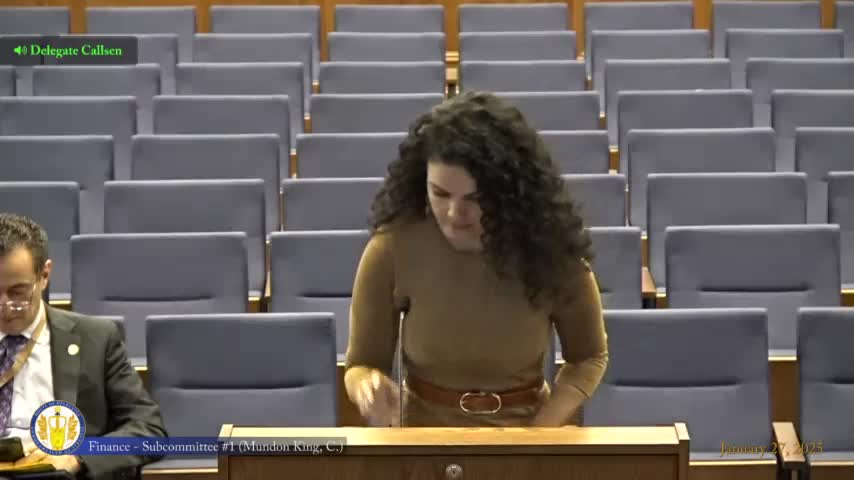House substitute on affordable‑housing assessments passes subcommittee after heated debate
Get AI-powered insights, summaries, and transcripts
Subscribe
Summary
A substitute for HB 2,245 clarifies that income‑producing affordable rental housing should be assessed using the income approach; supporters said incorrect assessments reduce developer feasibility while opponents warned of constitutional and appraisal‑practice concerns. The substitute was reported to the full committee, 5‑3.
Delegate Kenneth Colson presented a substitute to House Bill 2,245 to clarify how local assessors should value affordable rental housing for real‑property tax purposes. The substitute seeks to ensure that affordable housing properties that generate rental income be assessed using the income approach to value—that is, based on income and expenses—while allowing other approaches when income information is unavailable.
"If you're an affordable housing property that is generating income, you should be assessed using the income approach," Delegate Colson said, describing the change as a correction to an internal inconsistency in existing language that had permitted assessors to choose other approaches even where income information was available.
Proponents, including the Virginia Housing Alliance, said incorrect assessments across many localities increase costs for providers and threaten the long‑term viability of affordable developments. Alexander McAuley of the Virginia Housing Alliance told the committee the group surveyed providers and found misassessments in at least 31 jurisdictions, citing examples of thousands of dollars of additional taxes per property and legal costs to appeal.
Opponents and some appraisal professionals warned of legal and technical problems. Andrew McRoberts of Sands Anderson said the substitute "does not achieve uniformity" and raised a constitutional argument under Article X of the Virginia Constitution; he recommended an explicit statutory classification or other protections. Assessors and appraisal groups, including the Virginia Association of Assessing Officers and individual commissioners of the revenue, said the bill risks putting local assessors in conflict with USPAP and professional appraisal standards and that training or a clearer technical approach would be preferable.
The committee debated the legal and practical tradeoffs for most of the hearing. Supporters argued the substitute preserves uniformity because the statutory standard would apply to all affordable rental housing and would produce fair‑market results; opponents cautioned it could produce litigation and implementation difficulties if not further refined.
After discussion, the committee voted to report the substitute. "It's been moved and properly seconded to report this bill with the substitute," the clerk said; the roll was opened and the clerk announced, "On a vote of 5 to 3, House Bill 2,245 will be reported to the full committee."
